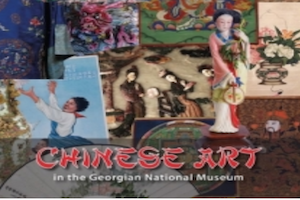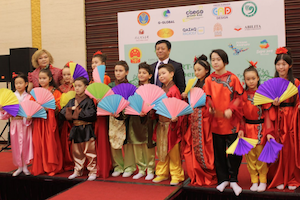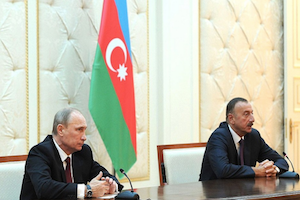Soft or Hard Power? Russia Reacts to Uzbekistan's Draft Language Policy
By Farkhod Tolipov
June 8, 2020, the CACI Analyst
In May 2020, Russian Ministry of Foreign Affairs spokesperson Maria Zakharova commented on a draft law initiated by Uzbekistan’s Ministry of Justice, stipulating the use of Uzbek language for the entire workflow in governmental bodies. According to the draft law, officials will be fined for failure to comply. Moscow reacted strongly to this political motion in Uzbekistan. Whereas support for national language and culture abroad is a normal feature of foreign policy and commonly regarded as a “soft power” tool; the statement of Russia’s MFA Spokesperson was received as another form of “hard power” in Uzbekistan.

China's Soft Power in the South Caucasus
By Nurlan Aliyev
March 2, 2020, the CACI Analyst
In December 26, 2019 , the Georgian National Museum presented a new exhibition titled “Chinese Art in the Georgian National Museum,” dedicated to the 70th anniversary of the People’s Republic of China, and a book on the theme by Georgian authors. Within this project, supported by the Embassy of the People’s Republic of China in Georgia, several exhibitions of works by Chinese painters take place in Tbilisi between December 2019 and February 2020. In recent years China’s growing economic presence in the South Caucasus has been accompanied by developments in cultural and educational relations between China and the regional states.

China's Soft Power in Central Asia
By Nurlan Aliyev
December 19, 2019, the CACI Analyst
On October 17-18, 2019, the 7th China-Central Asia Cooperation Forum, was held in Nanning, Guanxi province. The goal of the Forum was to further strengthen ties between China and the countries of Central Asia. Aside from its economic and security related interests in the region, China is also hoping to improve its image with the help of soft power influences, among populations where Sinophobic sentiments are strong. Despite several reports and information on Chinese projects with this aim, the question remains how effective China’s soft power in Central Asia really is.

Is Russia's Soft Power Influence Effective? The Case of Azerbaijan
By Nurlan Aliyev
May 21, 2018, the CACI Analyst
On March 16, Sputnik Azerbaijan published information on Azerbaijani participants of the international sport competition Football for Friendship, financed by Gazprom. On the same day, the vice-president of the Italian Senate Linda Lanzillotta, visiting Baku, stated that Russia is behind protests against the construction of the Italian segment of the TAP pipeline. This is one example of how Russia’s means for exercising soft and hard, if covert, power coexist in the former Soviet republics. Yet soft power influences receive decidedly less attention in reporting and discussion on Russia’s relations with these countries and Azerbaijan is an illustrative case in this regard.



